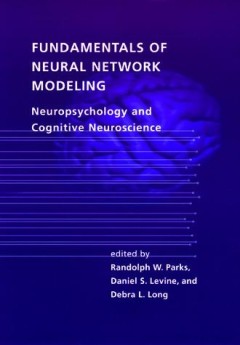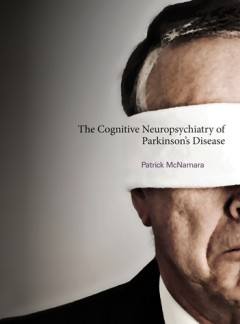Filter by

Fundamentals of neural network modeling : neuropsychology and cognitive neuro…
Over the past few years, computer modeling has become more prevalent in the clinical sciences as an alternative to traditional symbol-processing models. This book provides an introduction to the neural network modeling of complex cognitive and neuropsychological processes. It is intended to make the neural network approach accessible to practicing neuropsychologists, psychologists, neurologists…
- Edition
- -
- ISBN/ISSN
- 0585108358
- Collation
- 1 online resource (xiii, 428 pages) : illustrations.
- Series Title
- -
- Call Number
- 001 FUN

The Cognitive Neuropsychiatry of Parkinson's Disease
Patrick McNamara examines the major neuropsychiatric syndromes of Parkinson's disease in detail and offers a cognitive theory that accounts for both their neurology and their phenomenology.OCLC-licensed vendor bibliographic record.
- Edition
- -
- ISBN/ISSN
- 9780262298360
- Collation
- 1 online resource (x, 231 pages) :illustrations
- Series Title
- -
- Call Number
- -

Healing psychiatry : bridging the science/humanism divide
A new patient-centered approach to psychiatry that aims to resolve the field's conceptual tension between science and humanism by drawing on classical American pragmatism and contemporary pragmatic bioethics. Psychiatry today is torn by opposing sensibilities. Is it primarily a science of brain functioning or primarily an art of understanding the human mind in its social and cultural context? C…
- Edition
- -
- ISBN/ISSN
- 9780262269247
- Collation
- 1 online resource (xxii, 178 pages).
- Series Title
- -
- Call Number
- 610 BRE h

The measure of madness : philosophy of mind, cognitive neuroscience, and delu…
This title offers a novel explanation of delusion. Over the last two decades, philosophers and cognitive scientists have investigated explanations of delusion that interweave philosophical questions about the nature of belief and rationality with findings from cognitive science and neurobiology. The book argues that once we fully describe the computational and neural mechanisms that produce del…
- Edition
- -
- ISBN/ISSN
- 0262320975
- Collation
- 1 online resource (xxiv, 274 pages).
- Series Title
- -
- Call Number
- -

Mad by the millions :mental disorders in the age of world citizenship, expert…
"How mental disorders became comparable worldwide through the making of metrics, focussing on the WHO's first international social psychiatry project"--OCLC-licensed vendor bibliographic record.
- Edition
- -
- ISBN/ISSN
- 9780262363013
- Collation
- 1 online resource.
- Series Title
- -
- Call Number
- -

Psychiatry in the scientific image
An analysis of the understanding, classification, and explanation of mental disorders that proposes that psychiatry adopt the best practices of the cognitive sciences.In Psychiatry in the Scientific Image, Dominic Murphy looks at psychiatry from the viewpoint of analytic philosophy of science, considering three issues: how we should conceive of, classify, and explain mental illness. If someone …
- Edition
- -
- ISBN/ISSN
- 0262517442
- Collation
- 1 online resource (xi, 410 pages) :illustrations.
- Series Title
- -
- Call Number
- -
 Computer Science, Information & General Works
Computer Science, Information & General Works  Philosophy & Psychology
Philosophy & Psychology  Religion
Religion  Social Sciences
Social Sciences  Language
Language  Pure Science
Pure Science  Applied Sciences
Applied Sciences  Art & Recreation
Art & Recreation  Literature
Literature  History & Geography
History & Geography